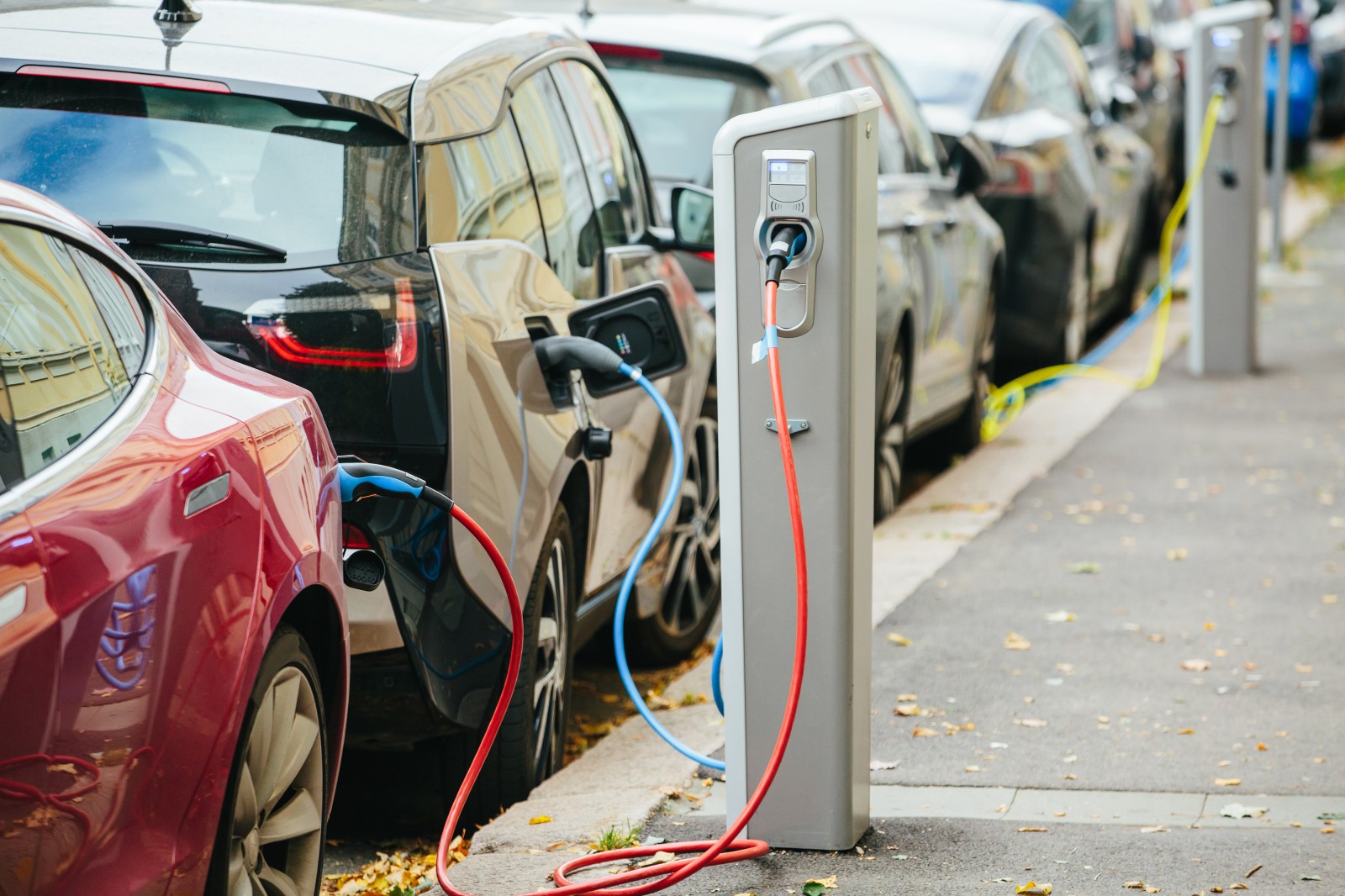What the Electric Vehicle Market Competition Means for Tesla

Elon Musk, a successful entrepreneur, is at the helm of Tesla Inc., an American power train and electric vehicle designer, manufacturer, developer, and distributor. The company’s headquarters can be found in Palo Alto, California, and it was established in 2003.
As of August 2022, Tesla was worth $884.91 billion to investors. Tesla said in 2021 that it would begin manufacturing the Cybertruck, an electric pickup truck with a 250-mile range 2022. In addition, the company hopes to begin manufacturing an electric semi-tractor truck.
Read More »In addition to becoming the best-selling luxury brand in the world, Tesla has managed to shake off its image as an electric car industry niche product.
Now the question becomes, “What is stopping Tesla from completely dominating the market?”
Bloomberg reports that Tesla’s CEO, Elon Musk, has dismissed the idea that the growing competition in the electric vehicle market is to blame for the company’s recent struggles. He instead points to Tesla’s limited ability to expand due to issues in the company’s supply chain.
The Praise of Tesla’s Competition by the CEO
Musk may not blame Tesla’s competitors, but the company finds itself in an awkward position anyway. Other brands, such as Ford, have experienced similar issues. Vehicles with electrified powertrains, like the F-150 Lightning pickup, have proven to be extremely popular with buyers, but mass production has proven to be a challenge.
Getting your hands on an F-150 Lightning might be tricky, as there have been over 200,000 requests to fulfill amid a lack of microchips and a shortage of lithium.
Musk may think his competitors are “very competitive, diligent, and brilliant,” but there are so many in the EV market increases pressure on the supply chain.
Tesla’s Recovery Plans
Elon Musk continued by saying the company had a bad quarter and was counting on its employees to get production back on track. Due mainly to production and supply chain difficulties in China, this quarter has been exceedingly challenging; thus, we must make every effort to recover. Musk wrote in an internal email.
The Shanghai factory took the most significant impact recently and was shut down for three weeks during the COVID-19 shutdown in Shanghai. Elon Musk went above and above to get production back up and running, even convincing employees to move in and work in a “closed-loop” system.
Musk said that Tesla is moving as quickly as possible to satisfy customer demand.
Demand for electric vehicles remains high despite widespread industry-wide shortages and supply chain disruptions. If you drive an electric vehicle or are seriously considering making the switch, waiting for a car that may save you a ton of money at the gas pump may be worthwhile.
Tesla’s Competitors
Although Tesla is the most well-known, this does not make it the only manufacturer of electric vehicles. Automakers have increased their availability of hybrid gasoline-electric and pure electric vehicles like the Nissan Leaf. Even while Tesla is a household name in China, the company has a very small portion of the burgeoning electric vehicle market at 6.6%.
With good cause, competitors increase production and promote their products more aggressively. The global EV market is expected to increase at a CAGR of 24.3% between 2021 and 2028, to over $1.3 trillion in 2028 from $287.36 B in 2021, according to research by Fortune Business Insights.
Even Nevertheless, Tesla vehicles have a prestige associated with them that the established automakers lack.
Let us look at some of Tesla’s biggest rivals below.
General Motors
General Motors, the Automobile producer, was established in the United States in 1908. General Motors has decided to transition to electric vehicle technology to combat global warming.
The firm has big ambitions for electric vehicles (EVs), including a Chevrolet Silverado EV with a range of 400 miles. On top of that, it’s strengthening its position as a market leader in software, batteries, production, and vehicle integration. They plan to spend $35 billion on electric and autonomous vehicles (AVs) worldwide between now and 2025.
According to the company’s forecasts, one million electric vehicles will be sold each year in the United States and China. Since its 2017 debut, General Motors has sold over a hundred thousand Bolt EVs. Some of the highest customer satisfaction and brand loyalty scores have been awarded to Bolt. More than three-quarters of U.S. Bolt EV sales are first-time General Motors customers.
General Motors has put a lot of thought into its batteries to power its electric vehicles. The Ultrium battery packs in this car are over 40% cheaper than those in the Bolt EV from Chevrolet.
In addition, the business predicts that the price of its next-generation Ultium packs will be about 60% less than that of today’s automobile batteries. Each electric vehicle uses batteries produced on the same platform because they share a single, standard cell and modular drivetrain.
Detroit, Michigan, is home to GM’s corporate offices. Lordstown, Ohio, is set to become a battery production hub for electric vehicles. Its market cap was $58.39 billion in August 2022.
Ford Motor Company
Ford Motor Company, established in 1903, is a leading global automaker. EVs, SUVs, and pickups get the company’s attention. In 2021, Car and Driver named the Ford Mustang Mach-E their first-ever Electric Vehicle of the Year.
Ford claims it will spend $22 billion on electric vehicle research, development, and production between now and 2025. Not only will there be an electric Mustang, but also an electric F-150 Lightning truck and an electric E-Transit van.
More than that, the firm commits to developing EVs that offer the remarkable performance, capability, and productivity for which the company is renowned.
One of Ford’s primary focus is commercial vans and pickups powered solely by electricity. Its goal is to bring the advantages of electric vehicles to the masses by making them more reasonably priced.
In April of 2022, Ford introduced the F-150 Lightning, an electric version of its popular pickup. There have been over 4,400 sales. Its main office is in Dearborn, Michigan. The company’s market valuation was $63.31 billion in August of 2022.
Volkswagen
If you’re looking for a car, Volkswagen is probably one of your best bets. Volkswagen automobiles, Audi automobiles, Bentley automobiles, Lamborghini automobiles, Porsche automobiles, and Skoda automobiles are only some of the company’s well-known brands.
Volkswagen has quietly been advancing into the electric vehicle market ten years after Tesla first appeared on the scene. The company predicts that most of its sales in the United States will be electric vehicles by 2030.
To accomplish this, it is spending billions of dollars. And to aid purchasers in meeting EU pollution standards, it intends to produce 1.5 million electric vehicles by 2025.
Volkswagen revealed plans to introduce over 70 new electrified cars over the next decade in 2019. On that assumption, it planned to manufacture 22 million all-electric vehicles.
Volkswagen is pursuing a complete decarbonization program to reach a CO2-neutral balance in all areas, including fleet, administration, and manufacturing, by 2050.
Volkswagen was founded in 1937, and since then, it has weathered two world wars and countless boom-and-bust economic cycles. The notorious 2015 emissions scandal led the firm to admit that many VW diesel engine cars sold in the United States had built-in software to detect when they were being emission-tested. They could also alter performance for better results.
Wolfsburg, Lower Saxony, is home to Volkswagen’s worldwide headquarters. The value of Volkswagen’s stock was $85.66 billion in August 2022.
NIO
China’s NIO Inc. (NIO) manufactures, designs, and exports high-end EVs. The EP9, which it claims is one of the world’s quickest electric automobiles, and the ES8 are two examples. NIO provides its consumers power options, including public charging stations, mobile charging trucks, and battery exchanges.
According to NIO, the company is distinguished by its “unique autonomous driving technology and Autonomous Driving as a Service. Besides, it is known for its industry-leading battery switching technologies, popular as Battery as a Service.
NIO delivered 10,052 automobiles in July 2022. The annual growth rate was 26.7%. There were 60,879 EVs shipped through July, an increase of 22% year over year.
Li Bin and Qin Li Hong established the firm in November 2014, with its headquarters in Jiading, China. It has a lab in San Jose, California, where they work on driverless vehicles. NIO was worth $32.85 billion by August 2022.
Tesla’s Potential Competitive Advantages
While it may no longer be the market leader for electric vehicles (EVs), Tesla nevertheless enjoys strong name awareness. It also benefits from consistent recommendations from satisfied customers.
Approximately two billion miles of data have been collected by Tesla’s Autopilot driver-assist technology, which might be used for autonomous driving. Tesla’s self-driving system is expected to benefit from this information.
Tesla’s battery technology has allowed the company’s cars to go further than competitors’ offerings. A full charge of the Tesla Model S will take you 405 kilometers.
The Bottom Line
Tesla has a huge market cap and is still well-known for pioneering the electrified vehicle sector, but it faces stiff competition from many rivals.
Many car companies are making headlines and gaining market share thanks to their electric vehicle (EV) initiatives, including Ford, China’s NIO, General Motors, and Germany’s Volkswagen.
Tesla may rely on its inventions and brand evangelists to keep its prominent place among EV rankings. But it looks like the competition will have much to say about it, with their industry-altering innovations in battery technology, production, and autonomous driving.
In the meantime, at least, Tesla’s dominance in the high-end automobile industry continues unabated.





